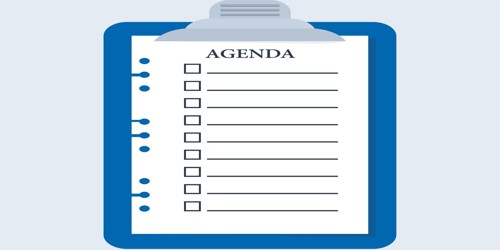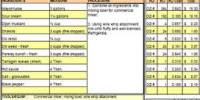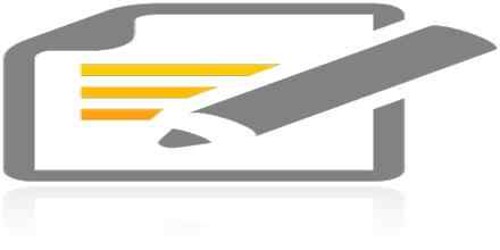Agenda
It is a list of items proposed to be discussed at a forthcoming meeting. A well-planned agenda gives a greater sense of control. It is a list, plan, outline, or the like, of things to be done, matters to be acted or voted upon, etc. It is a list of meeting activities in the order in which they are to be taken up, beginning with the call to order and ending with adjournment. It is also a list of problems or subjects that a government, organization, etc is planning to deal with. Without it, a meeting can rapidly become chaotic and important business may not be completed. It informs the chairperson and participants of the refined purpose of the meeting. This gives them time to prepare for the tasks and enables them to make a meaningful contribution.
A well-planned agenda can:
- provide a logical guide for business and discussion,
- bring harmony and efficiency to a meeting,
- help restrain participants from speaking out of turn.
Generally, it is notified to the members to be present at the meeting before the date of the meeting. It usually includes one or more specific items of business to be acted upon. It is a meeting program designed to enable all important and relevant points to be dealt with in good order and a good time. With a good agenda and someone to enforce it, the meeting has a much better chance of being efficient and successful. Simply, You might have a meeting, a lunch date, and a doctor’s appointment on your agenda for the day.
















